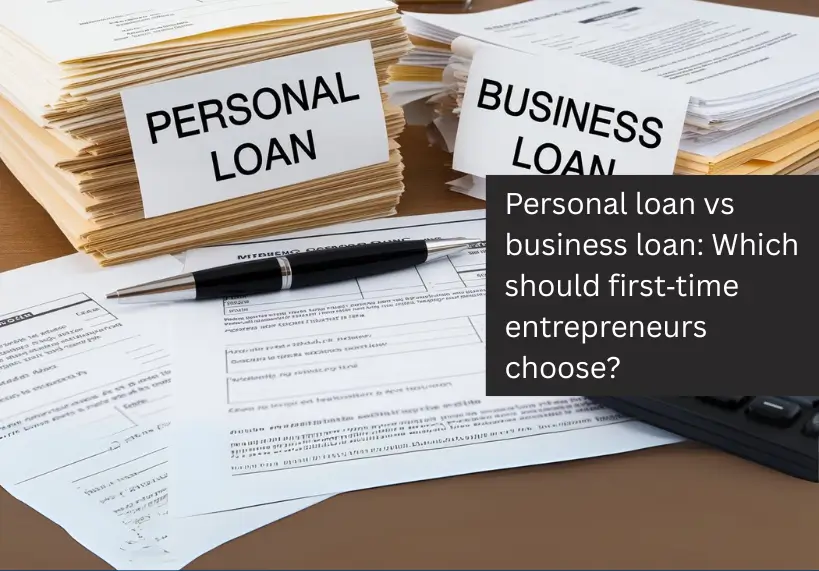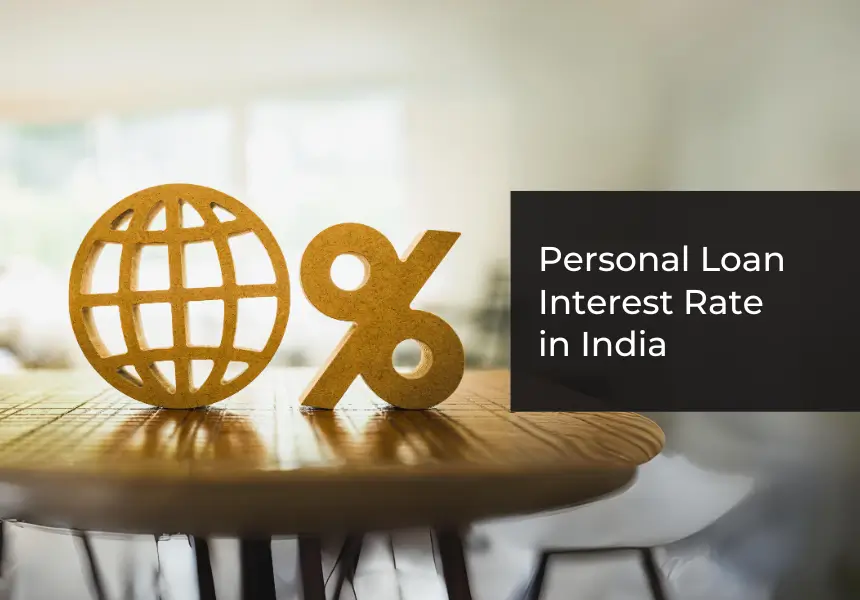
Starting your entrepreneurial journey can be both thrilling and overwhelming. One of the biggest questions new business owners face is: How do I fund my business idea? When external investors or bootstrapping aren’t viable, loans become the natural route. But this leads to another critical decision should you go for a personal loan or a business loan?
In this blog, we break down both options to help first-time entrepreneurs make an informed, confident decision. We’ll explore use cases, eligibility, documentation, interest rates, and risks associated with each. Whether you’re launching a small business or scaling a startup, this guide will help you choose the right financing tool.
Understanding the Basics: Personal Loan vs Business Loan
What is a Personal Loan?
A personal loan is an unsecured loan offered to individuals based on their creditworthiness, income, and repayment capacity. The funds can be used for any purpose including business and the borrower is personally liable for repayment.
Key Features:
- No collateral required
- Fixed interest rates
- Flexible end-use
- Shorter tenures (1–5 years)
- Disbursed quickly (often within 24–48 hours)
Learn more about personal loans
What is a Business Loan?
A business loan is offered to entities or individuals for a specific commercial purpose. It may be secured or unsecured and comes with eligibility criteria focused on the business’s financials and performance.
Key Features:
- Can be secured or unsecured
- Purpose-specific usage
- Higher loan amounts possible
- Longer tenures (up to 7 years)
- Documentation-heavy
1. First-Time Entrepreneurs: What Are Your Needs?
As a first-time entrepreneur, your primary goals are likely to include:
- Purchasing inventory or equipment
- Setting up an office or retail space
- Hiring initial staff
- Managing working capital
In the early stages, your business may not have a credit history or financial records which are usually required for traditional business loans. This often makes personal loans for salaried individuals an attractive and accessible option.
2. Eligibility and Documentation
Personal Loan
Eligibility Criteria:
- Salaried or self-employed individual
- Minimum income (varies by lender)
- Good credit score (usually 700+)
Documents Required:
- PAN card and Aadhaar card
- Income proof (salary slips or bank statements)
- Address proof
- Employment details
Business Loan
Eligibility Criteria:
- Business vintage of 1–3 years (depending on lender)
- Minimum annual turnover
- Business registration and tax filings
Documents Required:
- GST returns
- Business PAN card and registration certificate
- Bank statements
- Financial statements (Profit & Loss, Balance Sheet)
Verdict:
If you don’t yet have a registered business or a track record of revenue, getting a business loan can be challenging. In such cases, a personal loan provides a quicker path to funding, especially for gig workers, freelancers, and consultants.
3. Interest Rates and Loan Amounts
Personal Loan
- Interest Rate: Typically 11%–24% p.a.
- Loan Amount: ₹50,000 to ₹10,00,000 (depends on your income and credit score)
- Processing Time: 1–3 days
Business Loan
- Interest Rate: Typically 12%–20% p.a.
- Loan Amount: ₹1,00,000 to ₹50,00,000+
- Processing Time: 5–15 days
Verdict:
Business loans for MSMEs can provide higher loan amounts at slightly better rates, but they come with longer processing times and stricter documentation. Personal loans are faster but may carry higher interest if your credit score isn’t ideal.
4. Repayment Flexibility
Personal Loan
- Fixed EMIs
- Tenures between 12–60 months
- Prepayment allowed (sometimes with charges)
Business Loan
- Customizable repayment terms
- Options for step-up EMIs, interest-only payments in early months
- Flexible tenures up to 7 years
Verdict:
Business loans offer better flexibility tailored to revenue cycles, while personal loans are fixed and rigid. However, some lenders offer flexible loan products with repayment plans suited to evolving needs.
5. Risk and Liability
Personal Loan
- Borrower is personally liable
- Late payments impact personal credit score
- No benefit of tax deduction on business expenses
Business Loan
- Business bears the liability (in case of partnership or private limited firm)
- Business credit score is impacted
- Interest payments can be deducted as a business expense (under Income Tax Act)
Verdict:
From a legal and tax standpoint, business loans make more sense once your business is established. But if you’re testing an idea or in the pre-launch stage, a personal loan is easier to manage and faster to access.
6. Use Case Scenarios
| Scenario | Recommended Loan | Why? |
| You’re still employed and building a side hustle | Personal Loan | Faster approval, no need for business history |
| You’ve just registered your startup | Personal Loan | Business loan eligibility will be low |
| You have 2+ years of business operations with turnover | Business Loan | Tax benefits and larger funding possible |
| You need ₹2L urgently for working capital | Personal Loan | Quicker disbursal |
| You plan to apply for government subsidies (like CGTMSE) | Business Loan | Required for formal MSMEs |
7. What LoanTap Offers for New Entrepreneurs
At LoanTap, we understand the challenges faced by new-age entrepreneurs. That’s why we offer:
- Instant Personal Loans up to ₹10 Lakhs with minimal paperwork
- Short-Term Business Loans for MSMEs with fast processing
- Flexible EMI options, including step-up and interest-only plans
- Tailored products for freelancers, consultants, and gig workers
Whether you’re validating your business idea or scaling your operations, LoanTap ensures you get access to funds when you need them most — without the hassle.
Final Thoughts: Which One Should You Choose?
The choice between a personal loan and a business loan comes down to your business maturity, urgency of funds, and available documentation.
Choose a personal loan if:
- You’re just starting or testing a business idea
- You need funds urgently
- You don’t have business income or registration yet
Choose a business loan if:
- Your business is registered and generating revenue
- You want to separate personal and business liabilities
- You need a higher loan amount with tax benefits
Remember, many successful entrepreneurs started with personal loans before moving on to business financing. Start lean, build credibility, and then scale.
Frequently Asked Questions (FAQs)
1. Can I use a personal loan for business purposes?
Yes, you can use a personal loan to fund your business. However, you will be personally liable for the repayment, and the interest will not qualify for tax deduction.
2. Is it easier to get a personal loan or a business loan?
For first-time entrepreneurs, personal loans are generally easier to get due to fewer eligibility restrictions and quicker processing.
3. Will taking a personal loan impact my credit score?
Yes, timely repayment can improve your credit score, while missed payments can negatively affect it.
4. What is the maximum amount I can borrow as a first-time entrepreneur?
If you opt for a personal loan, you can borrow up to ₹10 lakhs depending on your income and credit profile. Business loans may offer higher limits if your business qualifies.
5. Can I later convert a personal loan into a business loan?
No, personal loans cannot be converted into business loans. However, once your business has matured, you can apply for a business loan to refinance or expand.
6. Which loan has more tax benefits?
Business loans offer tax benefits, as the interest paid is considered a business expense. Personal loans used for business purposes do not qualify for these deductions.








